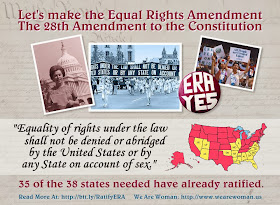"A woman stood on her back step, arms folded, waiting."I read this book about forty years ago, when it was first published. I had that first one, on the left, the original hardcover published in 1973. The one I currently have in my hand is the 1983 paperback, with waving plants on the cover. But I think that 2009 trade paperback with Nobel Prize sticker on it is the "best" cover — a sort of haunting foggy darkness that feels oppressive. Here's a synopsis of the story:
Kate Brown is faced for the first time in twenty years with the prospect of being alone. Her children are grown; her husband — a successful neurologist — is going to work for some months in an American hospital. Urged by him to take a job, she finds herself acting as interpreter for an international conference on food, becoming substitute mother to all the delegates, flying off to Turkey for another conference, to Spain for an affair with a younger man — all the traditional outlets. But this summer of exploration, freedom and self-discovery, during which she rejects the stereotypes of femininity — that, like her conventional clothes, do not fit her any longer — becomes more than a private stocktaking. What Kate discovers in this time of crisis enrages and appalls her as it brings her face to face with herself. At the beginning of the novel, Kate Brown is a fashionable and competent woman in a suburban garden. By summer's end the woman she was — living behind a protective camouflage of feminine charm and caring — no longer exists.I divorced my husband in 1973, plunging myself into poverty and becoming a single mother of three trying to finish my bachelor's degree. I was learning all about the gender gap in the 1960s and 1970s, when it would cost me almost as much in childcare as I could earn — as a woman. I kind of went crazy in the 60s and 70s, while all around me hippies and flower children were exploring the sexual revolution.
In 1979, I began teaching about racism, sexism, and EEO compliance to managers of a federal agency. (EEO, or Equal Employment Opportunity, was our country's new mandate.) I became a radicalized defender of women's rights, trying to explain women's lib (that's "lib-eration," folks) and the ERA (Equal Rights Amendment) to uncomprehending people like my ex-husband. When I read him the twenty-four words of the ERA, he was astounded. "That's all it says?" He had been brainwashed into believing it required lots of things it didn't, like women being drafted and sharing uni-sex public bathrooms. (Count the words in quotes in this ERA illustration — twenty-four words. I carried these words around with me on something like a business card, just to disillusion detractors. My ex's reaction was the best: "That's all it says? That doesn't seem so bad.")
In that world, in that time, I first read this book by Doris Lessing — and never forgot it. I joined a consciousness-raising group and read most of the books now listed as classics of women's liberation, including these:
The Feminine Mystique (1963) ~ by Betty Friedan,And now it seems like it's time to re-read this book and explore once again "the summer of the dark." (CORRECTION: That's an interesting — Freudian? — typo. I should have said "the summer before the dark." Maybe those summers were darker than I remembered.)
The Second Sex (1949) ~ by Simone de Beauvoir,
In a Different Voice (1982) ~ by Carol Gilligan,
The Women's Room (1977) ~ by Marilyn French,
The Bell Jar (1949) ~ by Sylvia Plath,
Diary of a Mad Housewife (1967) ~ by Sue Kaufman,
Beyond God the Father (1973) ~ by Mary Daly,
and Our Bodies, Ourselves (1973) ~ by The Boston Women's Health Book Collective.
Gilion at Rose City Reader hosts Book Beginnings on Fridays. Click here for today's Mister Linky.





I haven't read Lessing and this book will definitely go on my list of novels to read.
ReplyDeleteHarvee
Book Dilettante
I love the cover to this novel. I haven't read any of Lessing's works but I definitely want to check this one out now, it sounds really interesting. Thanks for sharing this, happy reading! :)
ReplyDeleteMy Friday Book Memes
What a great choice, Bonnie! I must read more Lessing. Enjoy!
ReplyDeleteMy Friday post: http://www.bookclublibrarian.com/2014/01/friday-focus-friday-56-book-beginnings_31.html
ReplyDeleteLove the beginning! I would go on....
Here is my post
This sounds like an important book that I need to read. Thank you for sharing your personal experience. I'm a member of your generation and although I didn't have the same life experiences you had, I can definitely relate. Young women today have no idea how things were, and I'm glad!
ReplyDeleteHere's the link to my Friday post: QUILT TRIP.